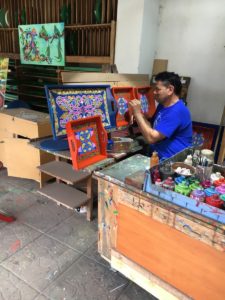“Why is the study of foreign languages and cultures essential to a liberal arts education?”
The study of foreign language and culture is forever linked with liberal arts education, in my eyes. In fact, I was a little confused when thinking about how to approach this question. The goal of a liberal arts education is to verse its students in several forms of study, so it seems logical that foreign language and culture is a part of this goal. The fact that people are challenging the connection of cultural education to the liberal arts education is extremely perplexing. Cultural education allows people to step outside of themselves and learn to appreciate different approaches to life. This skill is essential to personal development, and cultural education is one of the most effective ways in cultivating it.
In the public school system, especially K-12, we see a decline in liberal arts education overall, not to mention the removal of cultural classes in schools. The belief that students who focus more on their sciences and maths without developing their own points of view and becoming aware of the world around them is detrimental to our youth’s overall development.
Foreign language and culture specifically need to be emphasized in liberal arts institutions and others because while it is great for personal development, it also prepares students for the global workplace we live in. It will only get more diverse from here, and in order to be prepared for that, cultural education is of the essence. It allows students to broaden their horizons and immerse themselves in the lives of those around them. Some people question the importance of this experience, but it can be a humbling experience for many. Knowing that the way you live, speak, and eat are not the only ways nor the best ways is something that seems to be lacking in Western cultures. Even if fluency in another language is not the goal of every student, exposing themselves to other languages and the cultures that speak them is still valuable. Instead of viewing these things with biases or misjudgments, a person can see that culture or language for what it is – unique and important in its own way.
During my time learning Spanish and Hispanic culture, I know first-hand the newfound knowledge and appreciation that comes with themes of global competency. I have seen how similar, yet different other countries are and how that contradictory statement is what makes the world so interesting. Learning Spanish has taught me to be more flexible, think quickly, and open-minded. While some of these traits can be developed by other means, foreign language and culture will ingrain these concepts so deeply into a person that they do not even realize how much they’ve changed.
Foreign language and culture in the liberal arts education is a necessity. It pushes the narrative that liberal arts is already encouraging: learn to be a balanced person by experiencing each aspect of your realm of study, and use that to be creative. Removing oneself from what they are comfortable with, such as their native language or customs, is an encounter every student should have, liberal arts or not.

A Costa Rican man in Sarchí, Costa Rica creating a traditional painting.